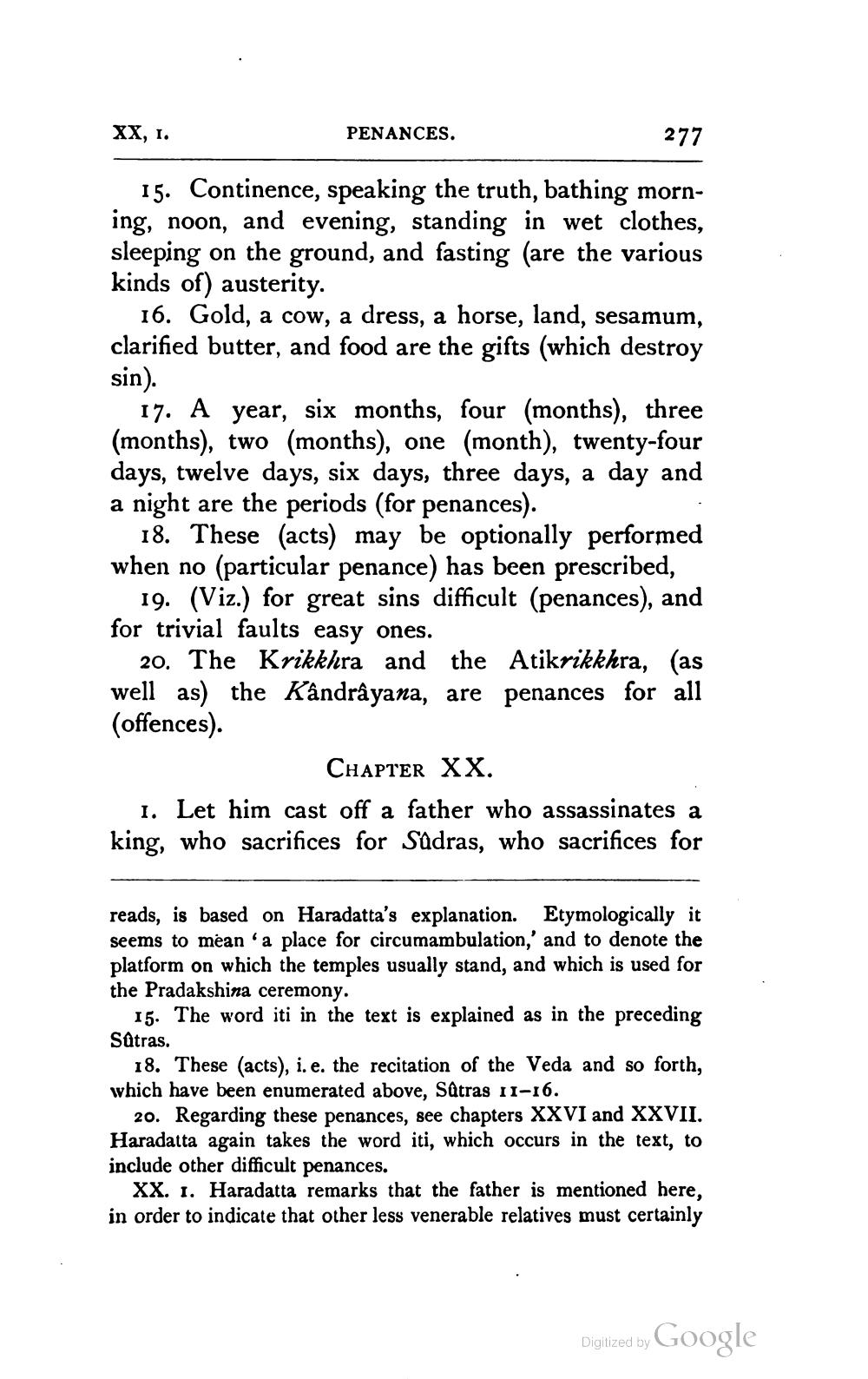________________
XX, 1.
PENANCES.
277
15. Continence, speaking the truth, bathing morning, noon, and evening, standing in wet clothes, sleeping on the ground, and fasting (are the various kinds of) austerity.
16. Gold, a cow, a dress, a horse, land, sesamum, clarified butter, and food are the gifts (which destroy sin).
17. A year, six months, four (months), three (months), two months), one (month), twenty-four days, twelve days, six days, three days, a day and a night are the periods (for penances).
18. These (acts) may be optionally performed when no (particular penance) has been prescribed,
19. (Viz.) for great sins difficult (penances), and for trivial faults easy ones.
20. The Krikkhra and the Atikrikkhra, (as well as) the Kândrayana, are penances for all (offences).
CHAPTER XX. 1. Let him cast off a father who assassinates a king, who sacrifices for Sadras, who sacrifices for
reads, is based on Haradatta's explanation. Etymologically it seems to mean'a place for circumambulation,' and to denote the platform on which the temples usually stand, and which is used for the Pradakshina ceremony.
15. The word iti in the text is explained as in the preceding Sutras.
18. These (acts), i.e. the recitation of the Veda and so forth, which have been enumerated above, Sätras 11-16.
20. Regarding these penances, see chapters XXVI and XXVII. Haradatta again takes the word iti, which occurs in the text, to include other difficult penances.
XX. 1. Haradatta remarks that the father is mentioned here, in order to indicate that other less venerable relatives must certainly
Digized by Google




